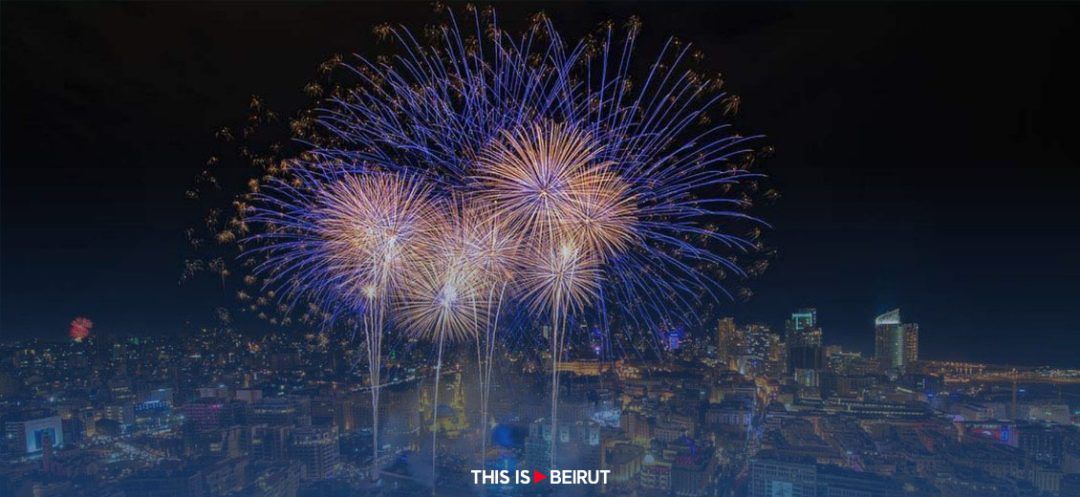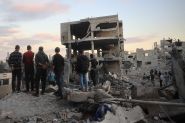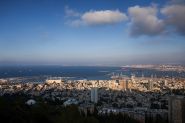- Home
- War in the Middle East
- The Editorial - 2023-2024: A Destabilizing Legacy

Undoubtedly, the Lebanese bid farewell to the past year without a hint of regrets. As they usher in 2024, there is a glimmer of hope, but more importantly, a bundle of apprehensions. The conclusion of 2023 was marked by daily clashes along the Israeli border, further entrenching the prevailing chaos characterized by a stalled presidential election, the erosion of state institutions across public sectors, the protracted economic crisis and, most critically, the deepening alienation of national sovereignty under the pressures of the new Persian empire.
In parallel with this already substantial situation, the end of this year witnessed seemingly isolated incidents that, when viewed individually, might seem inconsequential. However, when perceived collectively through a comprehensive view of the current situation, these events—some of which extend beyond Lebanon’s borders—become symptomatic of a specific mindset that reflects the outlines of a dangerous transnational project with hegemonic, obscurantist and sectarian characteristics.
In the Lebanese context, the conclusion of the year brings a series of unsettling developments and incidents that raise concerns, collectively forming a pattern of destabilization:
A militia-led defamation campaign targeting the Maronite Patriarchal Vicar of Haifa, Bishop Moussa el-Hage, and the Patriarchal Vicar of the Syriac Catholic Church for the Holy Land, Bishop Camille Semaan.
Two attacks within twenty-four hours on patrols of the UN Interim Force in Lebanon (UNIFIL), allegedly orchestrated by "local youth" (interpreted as Hezbollah) in two villages in South Lebanon.
The initiative of the Minister of Culture, Mohammed Wissam Mortada (Hezbollah), officially inviting the wife of the Iranian president to participate in a highly political conference of solidarity with Gaza, hosted at the National Library (under the Ministry of Culture).
Acts of vandalism committed by suspicious elements who set fire to two Christmas trees in Tripoli and destroyed a statue of the Virgin Mary in a village in the Jbeil district.
Untimely calls to abolish New Year celebrations, urging instead a gathering in the city center on the evening of December 31st as a gesture of solidarity with the Palestinian population in Gaza.
Within a brief timeframe, we witness a confluence of elements, each highlighting different aspects of the deconstruction strategy implemented by the Iranian camp:
An attempt to undermine the sovereign and national role upheld by Bkerke and the Church at large, both of which vehemently condemn the undermining of constitutional institutions and the sabotage of the presidential election.
A resurgence of aggressive actions aimed at curtailing the freedom of movement of UNIFIL and thwarting the resolute implementation of UN Security Council Resolution 1701.
A reaffirmation of Hezbollah's sectarian grip over state institutions, treating them as its "private property." This is evident in the manipulation of the Ministry of Culture and the National Library (state-owned) for overtly partisan propaganda, diverging from its cultural intended purpose.
The sustained upkeep of security tensions and the exacerbation of sectarian discord, all aimed at quelling the outrage ignited by Hezbollah's initiative to entangle the country in an absurd and unproductive war. The sole objective seems to be providing bargaining chips to the Iranian regime in anticipation of potential negotiations with the Western powers.
In the midst of the current highly tense regional and international context, striking parallels emerge between the irrational and disproportionate challenges facing Lebanon and three events that unfolded in different parts of the world during the same year-end period:
The decision of the pro-Iranian mohafez of Karbala, Iraq, to destroy decorations and the Christmas tree in the locality.
A provocative call, reminiscent of the one in Beirut, aimed at replacing New Year festivities on the Champs-Élysées with a large gathering in solidarity with Gaza!
The arrest by German authorities of three Islamists suspected of plotting a terrorist attack against Cologne Cathedral.
While initially disparate, these incidents and aggressive acts may seem unrelated. However, they reflect a shared mindset from another era and fit into the same political framework that disregards borders, seeking to impose its own societal project based on the rejection of anything closely or remotely associated with the West and universal humanistic values. Two worlds appear to be in conflict, breaking down national barriers from one country to another.
From this perspective, the struggle against Iranian influence in Lebanon transcends local considerations and takes on an existential dimension. The stakes involve safeguarding political pluralism, democratic practices, the liberal system, cultural diversity and the effective participation of communities in power—all of which have constituted the uniqueness and "raison d'être" of the Cedar's country in this part of the world for centuries.
Read more




Comments